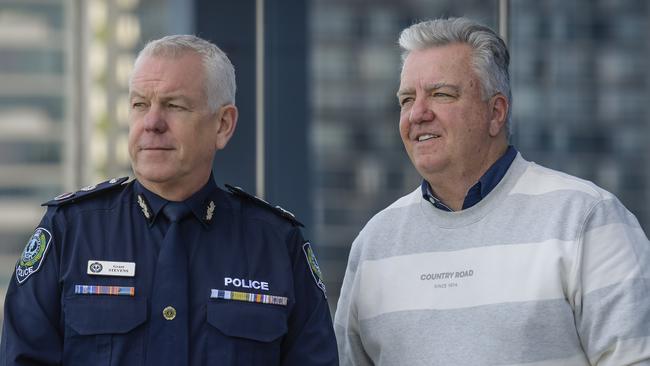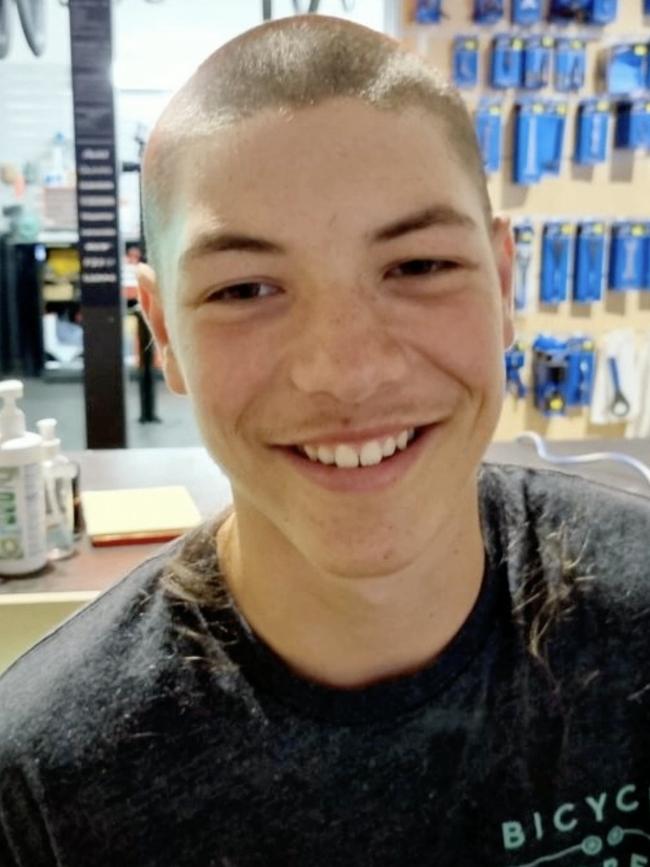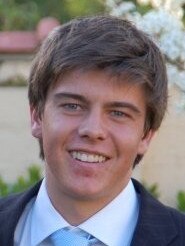After losing sons, dads seek legacy of life
Two prominent South Australian fathers who lost their teenage sons under tragic circumstances are urging a national overhaul of organ donor registration so that more ailing Australians can benefit.

Two prominent South Australian fathers who lost their teenage sons under tragic circumstances are urging a national overhaul of organ donor registration so that more ailing Australians can benefit from the lifesaving donations their children made.
SA Police Commissioner Grant Stevens and Adelaide real estate executive Oren Klemich lost their 18-year-old sons Charlie and Jack 15 years apart, with the premature deaths of the young men giving life to seven other Australians.
Charlie Stevens was killed in a car accident last November and Jack Klemich died after contracting meningococcal B in May 2009. They had just got their drivers licences, which in SA is the mechanism by which people register as organ donors, the only state with such a simple system to signal a preparedness to donate.
Other states used to let motorists list themselves as donors on their licences but have abandoned the practice, meaning SA now vastly outstrips the rest of the nation with 73 per cent of motorists registered as organ and tissue donors against the national average of 36 per cent.
Both the Stevens and Klemich families are well-known in SA, with the commissioner a much-loved figure due to his even-handed Covid management, the state grieving with him and wife Emma when Charlie died in Victor Harbor last year.
Aside from his real estate profile, Mr Klemich has been a powerful public campaigner for vaccinations and has also spent the past seven years on the board of the national organ donation advocacy group DonateLife.
Mr Stevens and Mr Klemich did not know each other before Charlie’s death but have since met and are now working to promote the organ donation cause. “It’s another one of those things that come out of tragedy, you meet other people in the same situation,” Mr Stevens said.


“Oren has been doing great work on organ donation for years and I have got to know him through that. You wish you could meet under different circumstance rather than sharing a bond that no parent wants to share.”
Mr Stevens said he, his wife and their other four children had been touched to hear from the people who had survived thanks to Charlie’s legacy.
“We have been heartened to receive three letters from people who were recipients of Charlie’s donation,” he said. “The gratitude they expressed means a lot to us. It doesn’t minimise the loss, but you can’t help but feel good hearing that another person is getting to spend more time with their loved ones or enjoying a better quality of life as a result of the donation Charlie made.”
Mr Klemich said his family also had been comforted knowing that Jack’s passing had at least helped other people survive.
“Five of Jack’s organs went to four other people,” he said. “One got his lungs and pancreas. He got two other people off dialysis with his lovely 18-year-old kidneys.
“You feel that Jack’s spirit is still out there keeping all these people alive around the country.
“The link that Jack and Charlie have is that they both made the decision when they got their licences that they were going to donate if the worst ever happened.
“Jack sat down with his mum when he was doing his licence and asked her what it meant to be an organ donor. Jill explained that, heaven forbid anything terrible happened to him, he’d be able to help other people who need transplants. That was only about three months before he died.
“That’s why this is so important. There’s only about 1200 Jack and Charlies around Australia each year who can donate their organs when it is a horrific brain injury which kills them but their organs are in perfect working order. Less than 600 say yes to donating, and the other 600-plus are counted as a no because their families don’t know what their wishes would have been.”
SA Health Minister Chris Picton has been urging other state health ministers to adopt the SA model, with the strong backing of DonateLife and its chief executive Lucinda Barry.
Ms Barry said every other state once used licences to register organ donors but had all closed their registries by 2012 when a national registry had been created. Now, people outside of SA must register via the DonateLife website or through the Medicare app. SA automatically uploads its state data to the national registry.
Since 2012, registration has lapsed nationally, with the only uptick being an 87 per cent increase in 2021 when organ donation was listed as an option on the Covid vaccination certificates.
“All the research shows that if registering is quick and easy then people will do it,” Ms Barry said.
“SA has maintained a strong culture of donation through maintaining the licence system. It is so important. Not only does it save lives, but for those people who have lost loved ones, the one thing they all say is the only good thing to come from tragedy was at least other lives were saved.”




To join the conversation, please log in. Don't have an account? Register
Join the conversation, you are commenting as Logout